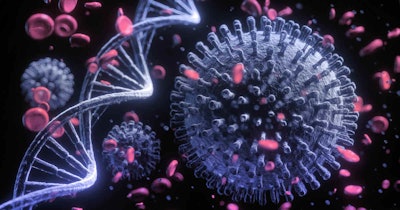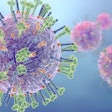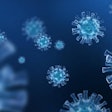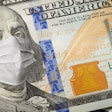
A study of people with SARS-CoV-2 infection who had at least one risk factor for progression to severe disease found that treatment with nirmatrelvir within five days of a positive SARS-CoV-2 test result was associated with reduced risk of post−COVID-19 condition, known as long COVID. The findings, published Thursday in JAMA Internal Medicine, held true across the risk spectrum in this cohort, regardless of vaccination status and history of prior infection.
The prevention of long COVID, which affects many individuals, has become an urgent public health priority. Nirmatrelvir, an oral protease inhibitor, has demonstrated antiviral activity against all coronaviruses known to infect humans. Nirmatrelvir is currently packaged with ritonavir as Paxlovid for treating COVID-19 in higher-risk individuals. The researchers sought to examine whether treatment with nirmatrelvir in the acute phase of COVID-19 was associated with reduced long-COVID risk.
This cohort study used the health care databases of the U.S. Department of Veterans Affairs to identify patients who had a SARS-CoV-2 positive test result between January 3, 2022, and December 31, 2022, who were not hospitalized on the day of the positive test result, who had at least one risk factor for progression to severe COVID-19 illness, and who had survived 30 days following SARS-CoV-2 diagnosis. A total of 281,793 patients, mean age 61.9, of which 242,383 (86.01%) were male, were studied. Among them, 246,076 received no COVID-19 antiviral or antibody treatment during the acute phase of SARS-CoV-2 infection, and 35,717 received oral nirmatrelvir within five days after the positive SARS-CoV-2 test result.
Inverse probability-weighted survival models were used to estimate the association of nirmatrelvir (versus control) with post-acute death, post-acute hospitalization, and a prespecified panel of 13 post-acute COVID-19 symptoms—all components of long COVID.
Compared with the control group, nirmatrelvir was associated with reduced long COVID risk, including reduced risk of 10 of 13 post-acute symptoms in the cardiovascular system (dysrhythmia and ischemic heart disease), coagulation and hematologic disorders (pulmonary embolism and deep vein thrombosis), fatigue and malaise, acute kidney disease, muscle pain, neurologic system issues (neurocognitive impairment and dysautonomia), and shortness of breath. Nirmatrelvir was also associated with reduced risk of post-acute death and post-acute hospitalization. In addition, nirmatrelvir was associated with reduced long-COVID risk in people who were unvaccinated, vaccinated, and boosted, and in people with primary SARS-CoV-2 infection and reinfection.
The researchers concluded that in people with SARS-CoV-2 infection and at least one risk factor for progression to severe COVID-19 illness, treatment with nirmatrelvir within five days of a positive SARS-CoV-2 test result — the acute phase of COVID-19 — reduces the risk of long COVID across the risk spectrum, regardless of vaccination status and history of prior infection.



















